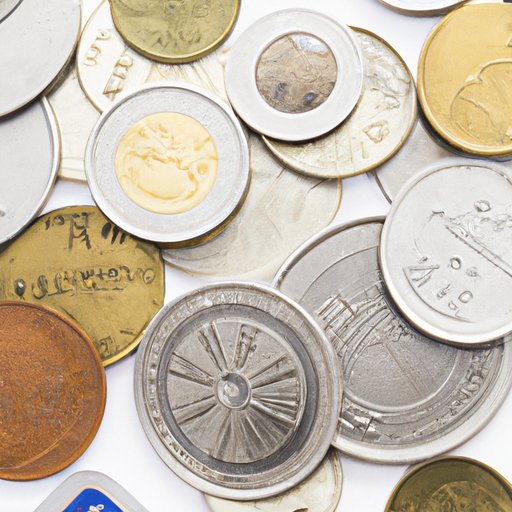
Introduction
Money is a fundamental concept in economics. It is used to facilitate trade, measure value, and store wealth. Understanding the concept of money is crucial for individuals, policymakers, and societies as a whole. In this article, we will explore what money is, its history, its role in different economic systems, its impact on the global economy, and its function in economic growth and development.
The Concept of Money in Economics: A Beginner’s Guide
Money can be defined as anything that is widely accepted as a medium of exchange in a particular society. It can take various forms, including physical currency, such as coins and banknotes, and digital currency, such as cryptocurrencies. Throughout history, different forms of money have been used to facilitate trade.
Bartering was the earliest form of trade, where goods were exchanged for other goods. As societies became more complex and specialized, bartering became less efficient. Gold and silver emerged as standard forms of money, as they were rare, durable, and easily recognizable. In the modern era, paper currency, backed by a government’s promise to pay, became the most common form of money.
Money has three main functions in an economy:
– Medium of exchange: Money is used to buy and sell goods and services.
– Unit of account: Money is used to measure the value of goods and services.
– Store of value: Money is used to store wealth for future use.
There are different types of currencies around the world, including fiat currencies, which are backed by a government, and cryptocurrencies, which are decentralized digital currencies that use cryptography to secure transactions. Bitcoin, Ethereum, and Ripple are some of the most popular cryptocurrencies.
Unpacking the Role of Money in Economic Systems
Money plays a crucial role in economic systems. The economic system of a country determines how goods and services are produced, distributed, and consumed. There are different economic models, including capitalism, socialism, and communism, which have different approaches to the role of money in the economy.
Under capitalism, individuals and businesses own and operate the means of production, with minimal government intervention. Money is used to facilitate trade and investment, and a free market determines prices and production levels. In contrast, under socialism, the government owns and controls the means of production, and there is more government intervention in the economy. Money is used to fund government services, and prices and production levels are determined by the government. Under communism, all property is publicly owned, and there is no need for money, as goods and services are distributed based on need.
Central banks, commercial banks, and financial institutions also play a crucial role in managing money and the economy. The central bank of a country manages monetary policy, which involves manipulating the money supply and interest rates to meet economic objectives, such as controlling inflation or stimulating economic growth. Commercial banks provide loans and other financial services to individuals and businesses, while financial institutions, such as investment banks, provide more complex financial services, such as underwriting investment opportunities.
Money and Its Impact on the Global Economy: A Comprehensive Analysis
Money has a significant impact on the global economy. Economic policies of countries can affect the global economy, as trade and financial flows are influenced by money and its circulation. Inflation and deflation, for example, can impact international trade. Currencies with a lower value provide a competitive advantage for exports, while high inflation rates can make imports more expensive.
Currency exchange rates also play a crucial role in the global economy. The exchange rate of a currency determines how much one currency is worth in another currency. This influences international trade and capital flows, as lower exchange rates make exports cheaper and more attractive, and higher exchange rates make imports cheaper.
The Evolution of Money in the Modern World and Its Significance in Economic Transactions
With advances in technology, money has evolved from physical currency to digital currency. Digital currencies are decentralized and secure, leading to lower transaction costs and increased efficiency. They have become more popular in recent years, with the rise of cryptocurrencies such as bitcoin.
Digital currencies have significant potential in economic transactions. They offer lower transaction costs than traditional payment methods and can facilitate international trade in a more efficient manner. However, regulatory concerns and lack of widespread adoption have limited their use in everyday transactions.
The Intricacies of Money and Its Function in Economic Growth and Development
Money is critical to economic growth and development. Governments can use monetary policy to increase the money supply, stimulate investment and employment, and encourage economic development. Money is also used to finance investments in infrastructure, trade, and development projects.
However, government policies can also influence the broader economic environment. Higher taxes and regulations can limit economic growth and investment, while lower taxes and deregulation can stimulate economic activity.
Conclusion
Money plays a crucial role in the economy. Understanding its function is essential for individuals, policymakers, and societies as a whole. In this article, we explored what money is, its history, its role in different economic systems, its impact on the global economy, and its function in economic growth and development. With this knowledge, we can better navigate the complexities of the economy and make informed decisions about our financial well-being.




